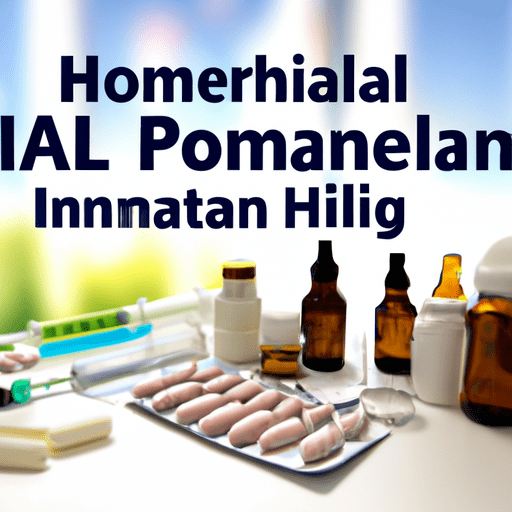Introduction
The pharmaceutical industry has been experiencing tremendous growth worldwide. The industry has been introducing a diverse range of innovative drugs and therapies that have revolutionized the healthcare sector. However, one area where the industry has been lacking is the development and production of halal pharmaceuticals.
Halal Pharmaceuticals refers to medicines or drugs that are manufactured in compliance with the Islamic laws of food and medicine. The development of halal pharmaceuticals has been gaining attention in recent years. The demand for halal drugs is growing exceptionally fast, particularly in the Muslim world, where religious practices forbid the consumption of any drug that contains alcohol, animal products or material derived from prohibited sources.
This article looks at the emerging halal pharmaceutical industry and whether it is the need of the hour.
Emerging Halal Pharmaceuticals Industry
The global market for halal pharmaceuticals has been growing rapidly, and this trend is expected to continue. According to a research report by Credence Research, the global halal pharmaceuticals market is projected to grow at a CAGR of 9.4% from 2021 to 2027.
The growth of the halal pharmaceuticals market is driven by several factors. The increasing demand for halal products, particularly in the Muslim world, is one of them. As Muslims worldwide seek to adhere to a halal lifestyle, the demand for halal medicines has spiked. The rise of the Muslim population and increasing awareness of halal products have also contributed to the growth of the halal pharmaceuticals market.
Another contributing factor is the growing demand for ethical and transparent practices in the healthcare industry. For many Muslim consumers, halal pharmaceuticals represent a more ethical and transparent alternative, as they are manufactured in compliance with Islamic law and free from any haram (prohibited) substances.
Furthermore, governments and regulatory bodies in Muslim-majority countries are beginning to recognize the importance of halal pharmaceuticals. For instance, Malaysia has become a leading halal pharmaceutical hub, with the country’s government introducing a Halal Healthcare Master Plan to support the industry’s growth.
The Need for Halal Pharmaceuticals
Halal pharmaceuticals offer several advantages over conventional drugs. For one, halal drugs are believed to be safer for consumption. They are manufactured using ingredients that have been ethically and sustainably sourced, which means they are free from harmful or toxic chemicals.
Secondly, halal pharmaceuticals offer peace of mind to Muslim patients. Muslims who adhere to a halal lifestyle take their religious practices seriously and would want to ensure that the medicines and drugs they consume are halal compliant.
Halal pharmaceuticals also offer financial benefits. The halal pharmaceutical market is large and growing, and investing in the industry can be a profitable venture for companies. Additionally, countries that cater to the halal pharmaceutical industry can position themselves as global leaders and generate revenue from halal tourism.
Conclusion
The growing demand for halal pharmaceuticals has created significant opportunities for companies in the pharmaceutical industry. Developing halal drugs can help companies enter new markets, reach new customers, and increase profits.
However, the development of halal pharmaceuticals requires investment in research and development, strict adherence to Islamic law’s guidelines, and the implementation of ethical manufacturing practices. These requirements can be expensive, but the potential financial and social benefits of investing in halal pharmaceuticals outweigh the costs.
In conclusion, the emerging halal pharmaceutical industry is the need of the hour. Halal drugs are not just a requirement for Muslims; they offer several advantages over conventional drugs and have the potential to drive revenue and economic growth. As the demand for halal pharmaceuticals continues to grow, companies will need to invest in this industry to remain relevant and competitive.


